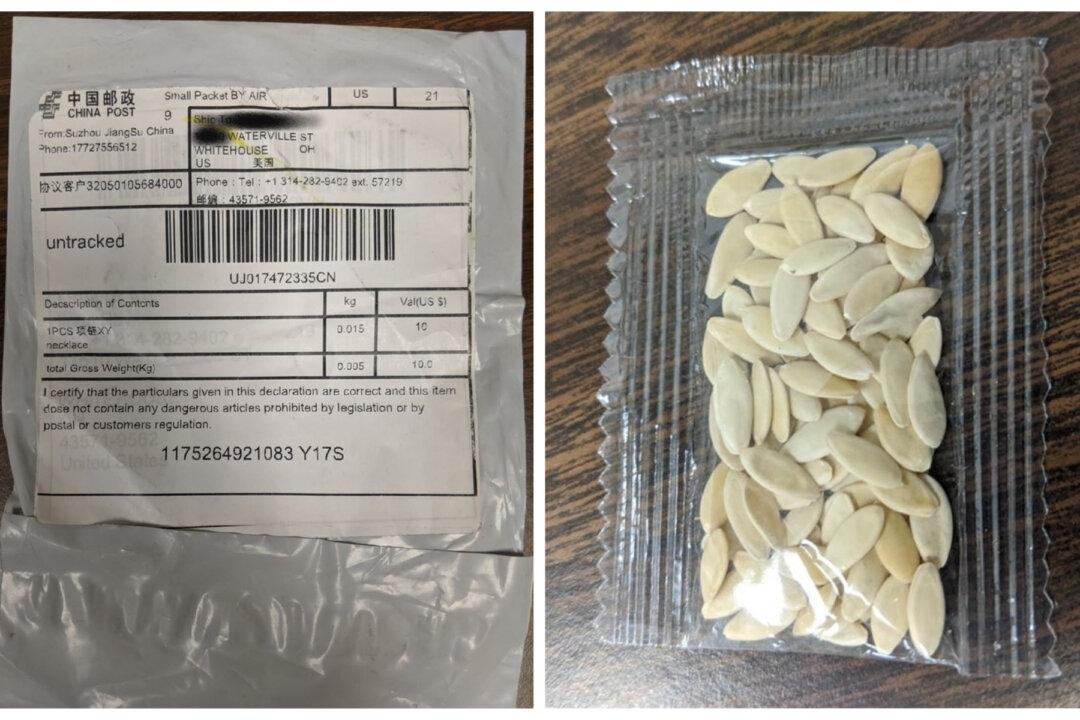All 50 U.S. states have issued warnings about unsolicited packages containing unknown seeds sent to random U.S. households from China.
According to various photos shared by the state departments, people across the country have received packages that appear to have been processed by China Post, which operates the official postal service of China. Labels on the packages indicate there is jewelry inside, only to reveal clear packets of seeds.




